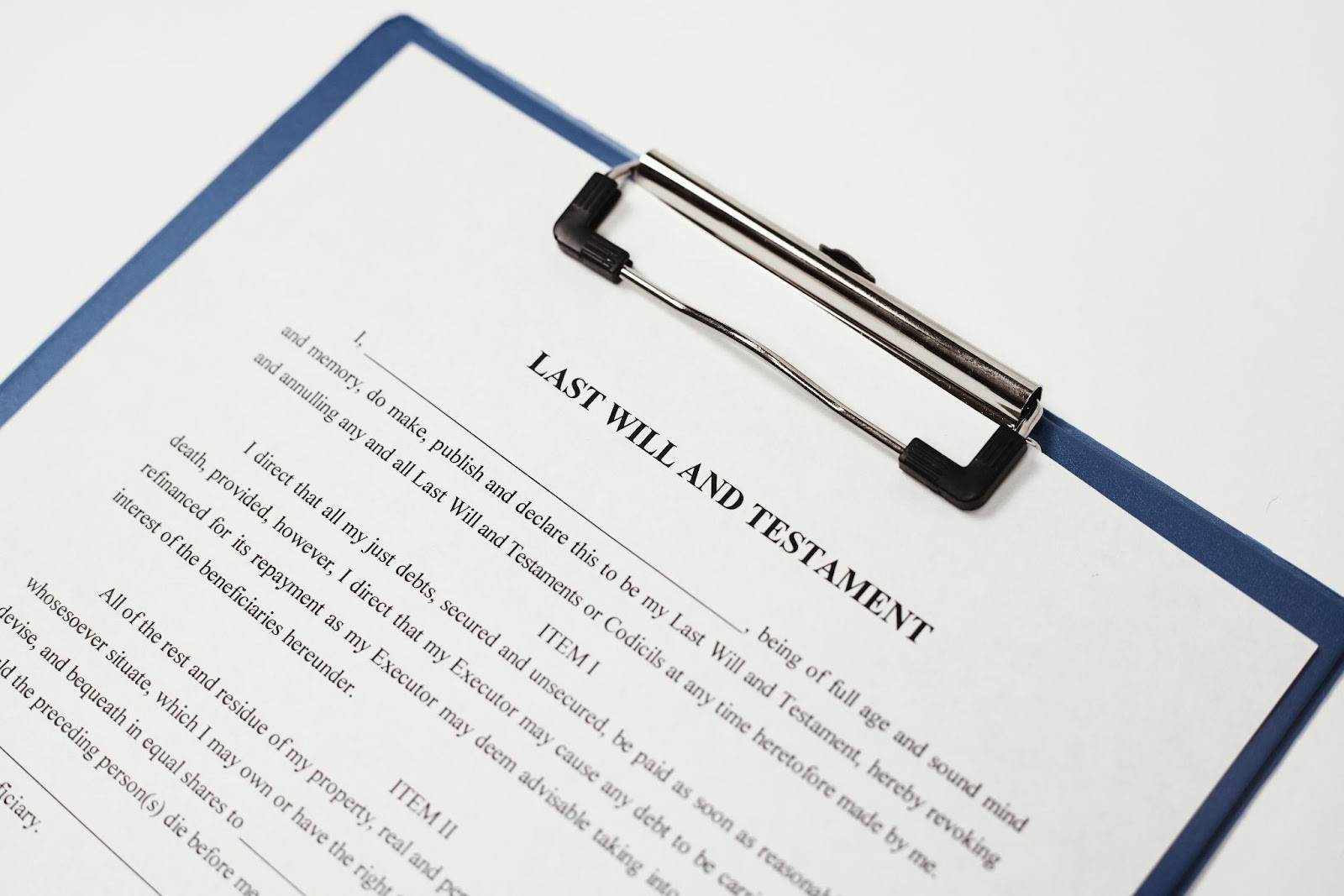
Nearly 76% of Americans lack a will, leaving their families vulnerable to costly legal battles and state-controlled asset distribution.
In Alabama, dying without a will means your property gets divided according to rigid state formulas that may completely contradict your wishes, potentially leaving your spouse with only half your estate while the other half goes to your parents, or forcing your children’s inheritance into restrictive guardianship accounts until they turn 18.
This reality highlights why creating a will becomes one of the most important decisions you’ll make for your family’s future. Whether you own a home, have young children, or simply want control over who receives your possessions, a will provides legal protection and peace of mind that no one should live without.
When You Need a Will in Alabama
Every adult in Alabama should have a will, regardless of age or wealth. The misconception that wills are only for wealthy individuals prevents many people from protecting their families and assets through proper estate planning.
Alabama law allows any adult of sound mind to create a will, provided they understand what property they own, who their natural heirs are, and how a will distributes their assets. The need for a will becomes especially urgent when you reach certain life milestones such as marriage, home ownership, starting a family, or accumulating any significant assets.
Even young adults with minimal assets benefit from having a will to designate guardians for future children and ensure their wishes are followed rather than leaving decisions to state formulas.
What Happens Without a Will in Alabama?
When someone dies without a will in Alabama, their property gets distributed according to the state’s intestacy laws rather than their personal wishes. These predetermined formulas often produce results that contradict what most people would want for their families.
Under Alabama’s intestate succession laws, if you’re married with children, your spouse receives only the first $50,000 of your estate plus one-half of the remaining assets, while your children inherit the other half. If you’re married without children, your spouse gets the first $100,000 plus half of the remaining estate, with your parents or siblings receiving the other portion.
For unmarried individuals, the entire estate goes to children, then parents, then siblings if no children exist. This rigid system doesn’t account for special relationships, charitable intentions, or unique family circumstances, making a will essential for ensuring your true wishes are honored.

Alabama Will Requirements and Execution
Creating a valid will in Alabama requires following specific legal formalities to ensure the document reflects your true intentions and withstands potential challenges. Understanding these requirements helps guarantee that your will accomplishes its intended purpose.
Alabama requires that all wills meet several mandatory criteria for legal validity:
- Written format – The will must be in writing, whether typed, printed, or handwritten.
- Testator signature – You must personally sign the will or direct someone else to sign in your presence.
- Witness requirements – Two competent witnesses must observe your signature and sign the will themselves.
- Mental capacity – You must have sound mind and understand the nature and consequences of making a will.
- Voluntary execution – The will must be created without undue influence, fraud, or coercion from others.
- Proper intent – You must intend for the document to serve as your last will and testament.
Alabama recognizes both formal typewritten wills and handwritten holographic wills, though formal wills with proper witnesses provide stronger legal protection and can expedite the probate process.
Key Components Every Alabama Will Should Include
A comprehensive will addresses multiple aspects of estate planning beyond simple asset distribution.
Including all necessary components ensures that your will provides complete protection for your family and assets.
Essential elements that every Alabama will should contain include:
- Executor designation – Name a trustworthy person to gather assets, pay debts, and distribute property according to your wishes.
- Asset distribution instructions – Specify who receives your real estate, personal property, financial accounts, and valuable possessions.
- Guardian nominations – For parents with minor children, designate who will raise your children if you cannot.
- Trust provisions – Establish protections for minor beneficiaries to prevent mismanagement of their inheritance.
- Backup appointments – Name alternate executors and guardians in case your first choices cannot serve.
- Specific bequests – Address sentimental items, family heirlooms, and charitable donations.
Clear, specific language in each section prevents disputes and ensures your intentions are understood and followed by your loved ones and the courts.

Estate Planning Beyond Wills
While a will provides essential protection, comprehensive estate planning includes additional documents that protect you and your family during your lifetime. These complementary documents work together to create complete coverage for various scenarios.
A durable power of attorney allows someone you trust to handle financial decisions if you become incapacitated, preventing the need for costly guardianship proceedings.
Healthcare directives, including living wills and healthcare powers of attorney, communicate your medical preferences when you cannot speak for yourself.
For individuals with substantial assets, trusts provide additional benefits including probate avoidance, tax planning, and ongoing asset management that extend beyond what a will alone can accomplish.
Frequently Asked Questions About Wills in Alabama
Understanding common concerns about wills helps Alabama residents make informed decisions about their estate planning needs and options.
At What Age Should I Create a Will?
Every adult aged 18 or older should have a will. While many people think they’re too young to need estate planning, unexpected accidents or illnesses can occur at any age, making early preparation essential.
Do I Need a Will if I Don’t Have Much Money?
Yes, even people with modest assets benefit from having a will. Beyond distributing property, wills allow you to name guardians for children, designate executors, and ensure your wishes are followed regardless of wealth level.
Can I Write My Own Will Without an Attorney?
Alabama allows self-written wills, but professional legal assistance typically provides better protection. Attorneys ensure proper execution, comprehensive coverage, and compliance with current laws.
How Often Should I Update My Will?
Review your will every three to five years or after major life events such as marriage, divorce, births, deaths, significant asset changes, or relocations to ensure it reflects current circumstances.
Can I Disinherit Family Members in Alabama?
You can disinherit anyone except your spouse, who has the right to claim up to 30% of your estate under Alabama’s elective share laws. Disinheriting children requires specific language in your will.
What Happens to My Digital Assets?
Include provisions for digital assets like online accounts, cryptocurrencies, and digital files in your estate planning. Provide access information and instructions for your executor to handle these important assets.
Secure Your Family’s Future With Professional Estate Planning
Creating a will represents one of the most responsible decisions you can make for your family’s security and peace of mind. Alabama’s intestacy laws rarely align with personal wishes, making a properly executed will essential for ensuring your assets go to the right people and your children receive appropriate care.
The complexity of Alabama’s estate planning requirements makes professional guidance invaluable for creating documents that truly protect your interests.
Whether you’re a young adult starting your career, a growing family with young children, or someone with substantial assets, having current estate planning documents provides security that no family should live without.
Don’t leave your family’s future to chance or state-determined formulas.
Contact Baxley Maniscalco today to discuss your estate planning needs with experienced Alabama attorneys who understand the intricacies of wills, trusts, and comprehensive family protection.
Can't find what you're looking for? Search our site below.










